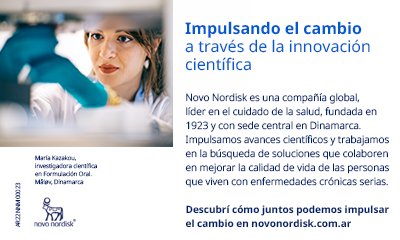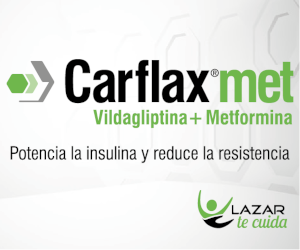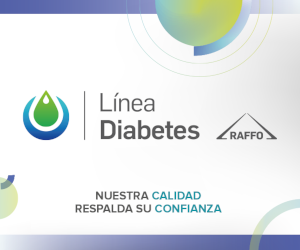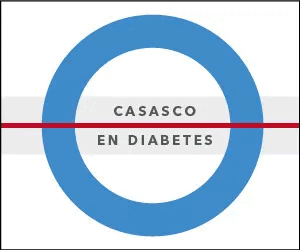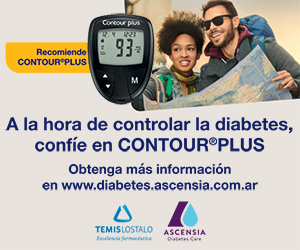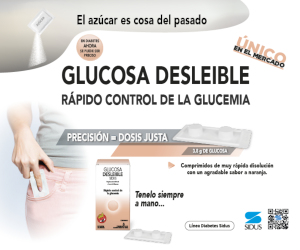Autoimmune associations and cardiovascular risk
Keywords:
diabetes, cardiovascular riskAbstract
The incidence of autoimmune diseases (AID) has had a sustained increase in the last 20 years in both children and adults. Patients with autoimmune disorders present with significantly increased risk of developing cardiovascular disorders (CVD) compared to general population, and this risk rises with its association, as demonstrated in different studies in young adults, where the presence of AID was associated with higher hospitalization and higher rate of death from CVD. In pediatric age, the prevalence of the association of type 1 diabetes (T1D) with another autoimmune disease (IAD) is 25 to 30%, with the most frequent being the presence of antithyroid antibodies followed by tisular transglutaminase antibodies. In approximately 3%, the diagnosis is simultaneous with the onset of T1D.
As of today, the precise pathophysiological links between the many different, and particularly the less common, autoimmune disorders, their treatments, and cardiovascular disease, are not entirely understood and require elucidation.
As probable mechanisms, the chronic subclinical pro-inflammatory state triggered by the immune response, mediated mainly by regulatory T lymphocytes, (which makes these cells a potential therapeutic target for autoimmune and infectious diseases) and the decrease in nutrients such as vitamin D are postulated. , B12 or folate, which can determine an increase in homocysteine, in many studies the microbiota is also implicated in the association between IAD and increased risk of CVD, given that its modulation can affect atherosclerotic processes.
Regarding the classic risk factors for CVD, a more atherogenic lipid profile pattern has been described in AID, especially in celiac disease, given by lower HDL and higher triglyceride values, and by physical characteristics of serum lipoproteins (higher density of LDL, smaller size of HDL).
Cardiovascular risk prevention deserves to be an integral part of the management of AID. Further research is needed to design and assess the effectiveness of cardiovascular prevention measures for patients with autoimmune disorders, such as screening programmes and early use of preventive treatments.
References
I. Conrad N, Verbeke G, Molenberghs G, et al. Autoimmune diseases and cardiovascular risk: a population-based study on 19 autoimmune diseases and 12 cardiovascular diseases in 22 million individuals in the UK. Lancet 2022;400(10354):733-743. doi: 10.1016/S0140-6736(22)01349-6.
II. Kim G, Divers J, Fino NF, et al. Trends in prevalence of cardiovascular risk factors from 2002 to 2012 among youth early in the course of type 1 and type 2 diabetes. The SEARCH for Diabetes in Youth Study. Pediatr Diabetes 2019;20(6):693-701. doi: 10.1111/pedi.12846.
III. Rohrer TR, Wolf J, Liptay S, et al. Microvascular complications in childhood-onset type 1 diabetes and celiac disease: a multicenter longitudinal analysis of 56,514 patients from the German-Austrian DPV Database. Diabetes Care 2015;38(5):801-807.
IV. Conroy M, Allen N, Lacey B, Soilleux E, Littlejohns T. Association between coeliac disease and cardiovascular disease: prospective analysis of UK Biobank data. BMJ Med. 2023 Jan 4;2(1):e000371. doi: 10.1136/bmjmed-2022-000371.
Downloads
Published
How to Cite
Issue
Section
License
Copyright (c) 2024 on behalf of the authors. Reproduction rights: Argentine Society of Diabetes

This work is licensed under a Creative Commons Attribution-NonCommercial-NoDerivatives 4.0 International License.
Dirección Nacional de Derecho de Autor, Exp. N° 5.333.129. Instituto Nacional de la Propiedad Industrial, Marca «Revista de la Sociedad Argentina de Diabetes - Asociación Civil» N° de concesión 2.605.405 y N° de disposición 1.404/13.
La Revista de la SAD está licenciada bajo Licencia Creative Commons Atribución – No Comercial – Sin Obra Derivada 4.0 Internacional.
Por otra parte, la Revista SAD permite que los autores mantengan los derechos de autor sin restricciones.


